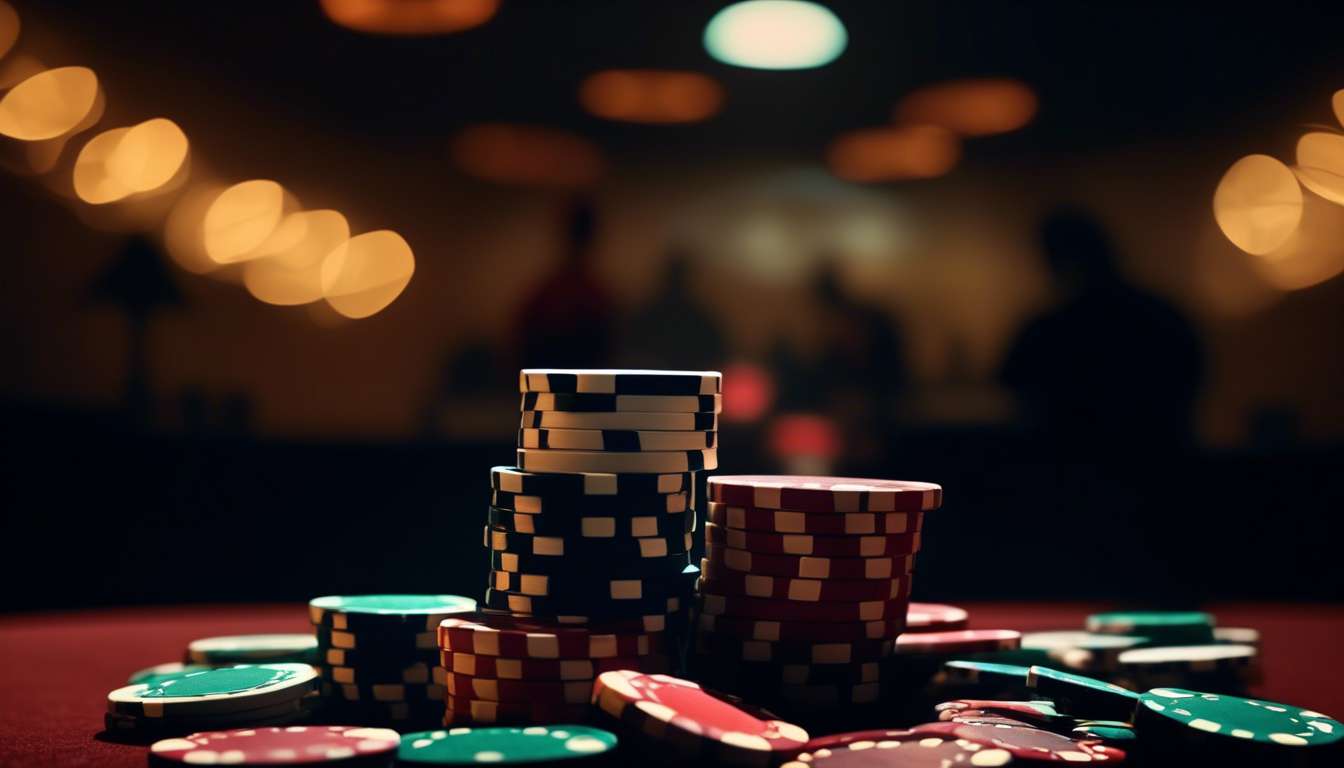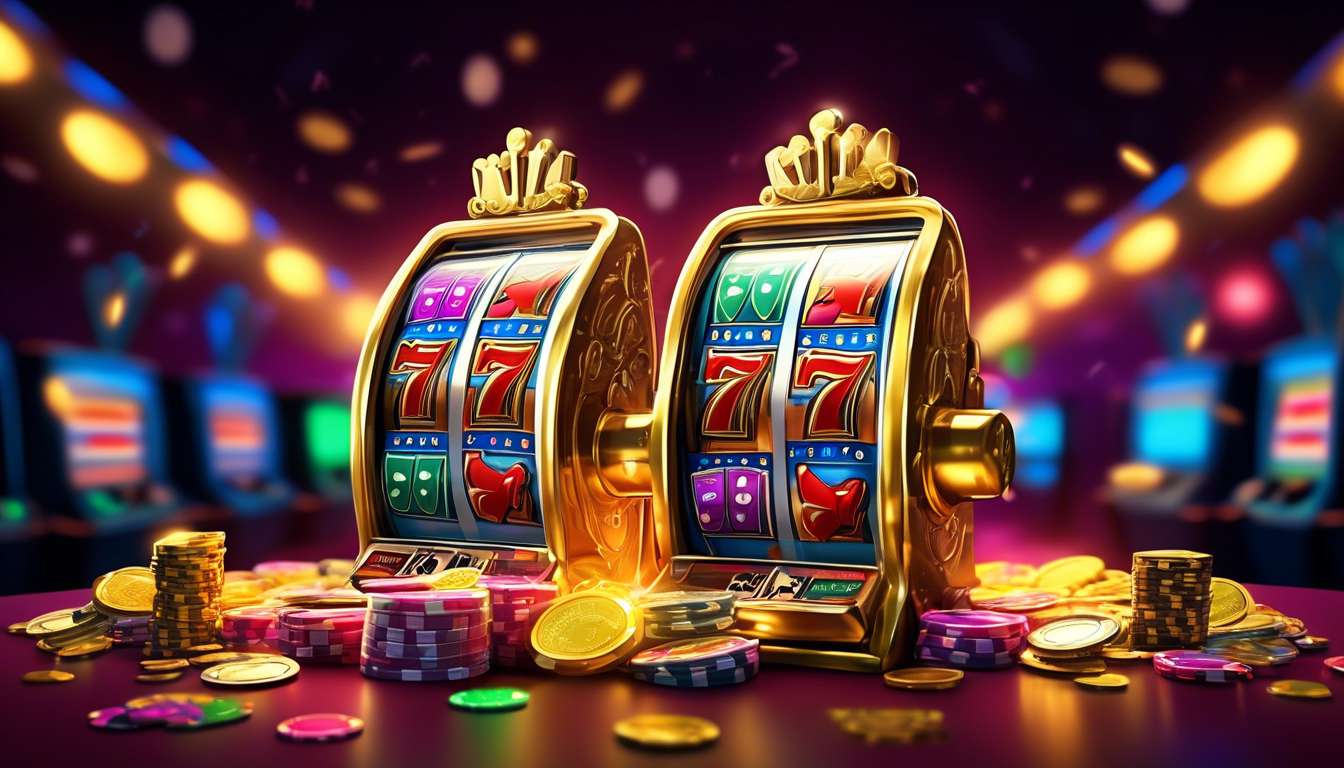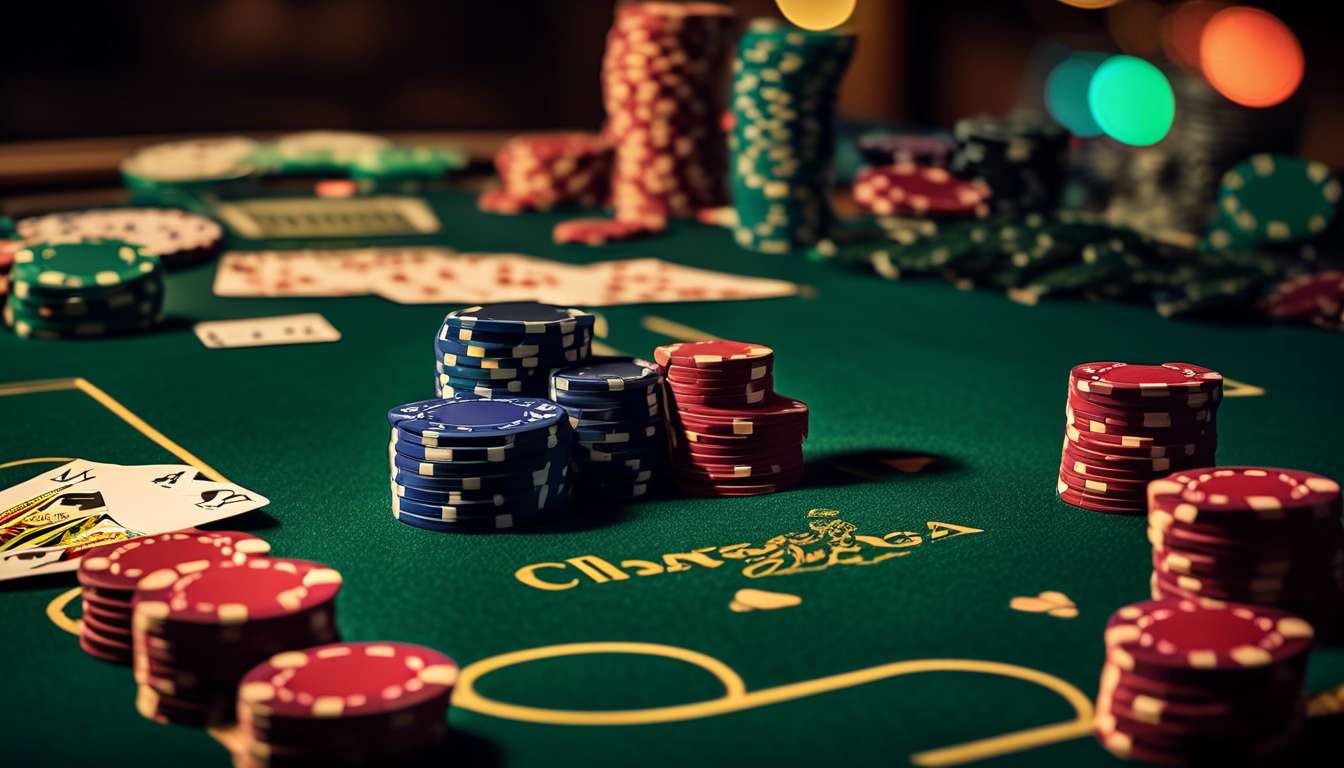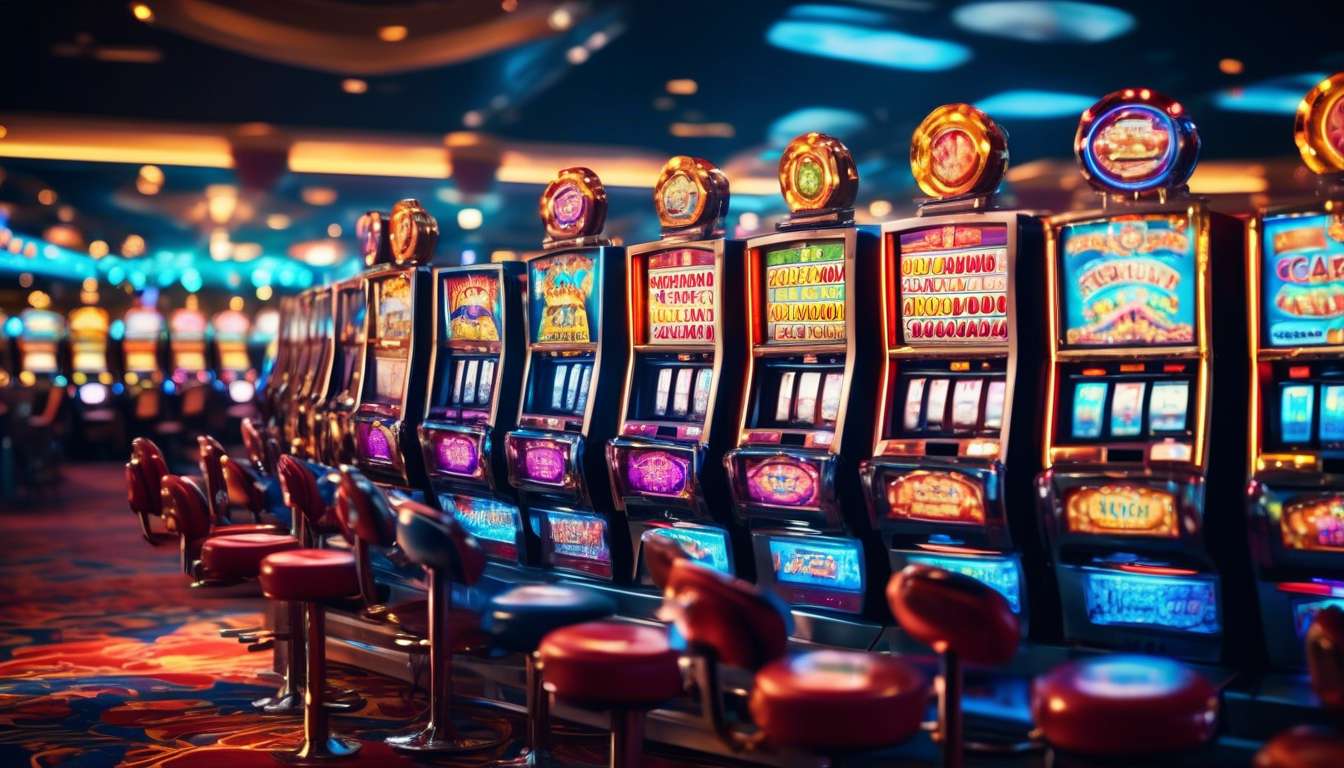Gambling has always intrigued us, drawing us into a complex world where chance and choice intertwine. As we explore the psychology behind gambling, we aim to unravel the factors that influence our decisions at the betting table or slot machine.
From the thrill of anticipation to the fear of loss, these experiences tap into deep-seated psychological mechanisms. We often find ourselves wondering why, despite understanding the risks, we are still compelled to take that leap. Is it the allure of a big win, or perhaps the social dynamics of group betting?
By delving into:
- Cognitive biases
- Emotional triggers
- Impact of environment
we hope to shed light on the reasons behind our choices.
Understanding these underlying forces can empower us to make more informed decisions and perhaps even enhance our enjoyment of the game.
Together, let’s journey through the fascinating psychology of gambling, examining how it shapes our behaviors and perceptions.
The Role of Dopamine in Gambling
Dopamine’s Role in Gambling
Dopamine plays a crucial role in gambling by triggering the brain’s reward system and reinforcing the thrill of the activity. When we gamble, our brains release dopamine, creating a rush that feels like a communal high—one we share with fellow gamblers. This chemical encourages us to keep chasing that exhilarating feeling, binding us together in our pursuit of winning.
However, this relentless chase often leads us into a cycle where the thrill overshadows rational decision-making.
The Illusion of Control
Our desire for control, or the Illusion of Control, makes us believe we’re masters of our gambling fate, even when chance dominates the game. This illusion feeds off the dopamine-induced excitement, urging us to take risks we might otherwise avoid.
Loss Aversion
Coupled with Loss Aversion—the fear of losing what we’ve already gained—we find it hard to step away from the table. Together, these elements create an environment where we’re driven by emotion, making it difficult to resist the pull of the next bet.
Illusion of Control in Betting
The Illusion of Control
Many of us gamble under the illusion that our choices can influence the outcome, convinced that our strategies and rituals give us control. This Illusion of Control often leads us to believe that we can beat the odds, even when randomness reigns supreme.
We find ourselves drawn to the thrill, partly because of dopamine—a neurotransmitter that rewards our brain with pleasure and excitement during these risky ventures.
Loss Aversion in Gambling
As a community of gamblers, we often share the experience of loss aversion. We hate losing more than we enjoy winning, which can make us cling even tighter to our perceived control.
We might:
- Stick to lucky numbers
- Insist on particular betting patterns
Believing these are our ticket to success.
Rituals and Community
However, the truth is that these rituals mostly serve to enhance our sense of belonging and involvement in the gambling world.
We’re united in this shared experience, facing the highs and lows together, as we chase the elusive feeling of control.
Social Influence on Gambling Behavior
Our gambling habits are often shaped by social circles, as we’re influenced by friends, family, and the broader community. Together, we experience the thrill of the game, sharing victories and consoling each other in losses.
This shared experience can enhance our sense of belonging, making each gaming session more enticing. When we win, dopamine rushes through our brains, creating a bond among us that reinforces the behavior.
We often fall under the illusion of control, believing that our collective strategies or superstitions can sway the odds in our favor. It’s comforting to think that together, we have an edge.
However, we must recognize:
- How social dynamics can amplify our risk-taking
- Our susceptibility to loss aversion
When someone in our group hesitates, we might collectively fear losses, leading to impulsive decisions.
By understanding these influences, we can make more informed choices and maintain our connections without risking too much.
Understanding Loss Aversion in Gaming
Loss Aversion and Gambling
Many of us continue betting because the fear of losing feels more intense than the pleasure of winning. This intense fear is known as loss aversion, a powerful force that can keep us glued to the game.
We’re all in this together—our brains are wired to avoid losses more than to seek gains.
The Role of Dopamine
When we gamble, dopamine surges through our brains:
- Reinforcing every decision
- Creating that rush we crave
It’s a shared experience, this emotional rollercoaster, where we ride alongside each other, searching for that elusive win.
The Illusion of Control
But there’s more than just chemicals at play. The illusion of control lures us into believing we can influence the outcome. We think our choices matter, that maybe this time we’ve got the magic touch. Yet, despite our best strategies, the house often wins.
Understanding and Overcoming Patterns
Understanding loss aversion helps us recognize these patterns. By sharing our stories and experiences, we can better navigate the complex world of gaming together.
Impact of Near Wins on Decisions
Near Wins and Psychological Impact
Near wins trick our minds into believing we’re close to victory, fueling the desire to keep playing. As a community, we often find ourselves captivated by this tantalizing prospect. It’s not just luck; there’s a psychological dance at play.
The Role of Dopamine
Near wins release dopamine, the brain’s "feel-good" chemical, providing a rush similar to an actual win. This sensation can be intoxicating, making us feel as if we’re in control, even when we’re not. This illusion of control can lead us to push the boundaries, convinced that our next attempt will be successful.
Loss Aversion
We also grapple with loss aversion, which means the pain of losing feels more significant than the pleasure of winning. Near wins exploit this by making us want to avoid the discomfort of losing, pushing us to try again.
Making Informed Decisions
By understanding these psychological triggers, we can support each other in making more informed decisions. This ensures our choices align with our shared values and well-being.
How Framing Affects Gambling Choices
The Influence of Framing on Gambling Choices
The way we’re presented with gambling choices significantly influences our decisions, often without us even realizing it. When a game is framed as a potential win, our brains flood with dopamine, making the gamble seem more enticing. We feel a part of an exclusive group on the brink of success. This framing taps into our need for belonging and shared excitement.
The Illusion of Control
- The illusion of control can lead us astray.
- We might believe that our choices have a greater impact than they actually do.
- This reinforces our confidence and encourages riskier bets.
Role of Loss Aversion
- Loss aversion plays a critical role in decision-making.
- If a gamble is framed in terms of potential losses, we’re more likely to avoid it, even if the odds are favorable.
- We dread the feeling of exclusion that comes with losing, which can overshadow the logical assessment of the gamble.
Conclusion
By understanding how framing affects our gambling choices, we can make more informed decisions and foster a sense of community.
The Escalation of Commitment in Wagering
Many of us find ourselves doubling down on bets, driven by the escalation of commitment despite mounting losses. This familiar scenario is fueled by our deep-rooted need to belong and succeed, even when the odds stack against us.
With each wager, dopamine floods our brains, creating a thrilling rush that we crave to experience again and again. The emotional high can mask our better judgment, making us believe we can regain control and turn the tide in our favor.
This illusion of control, coupled with loss aversion, keeps us on a precarious path. We convince ourselves that our next bet will recover our losses, a notion bolstered by the fear of missing out on a potential win.
As a community, we share these experiences, finding solace in the fact that we’re not alone in our struggles. Together, we can:
- Recognize these patterns
- Support one another
- Foster understanding
By doing so, we can shed light on the psychological forces at play in gambling.
Cognitive Dissonance in Gaming Choices
Many of us experience cognitive dissonance when our gaming choices conflict with our beliefs about responsible gambling. We find ourselves torn between the thrill of the game and our desire to remain in control. This internal struggle often stems from the dopamine rush that gambling provides, as this neurotransmitter rewards us with feelings of pleasure and excitement. These sensations can cloud our judgment, making it difficult to stick to our original intentions.
We often fall for the illusion of control, convincing ourselves that our strategic choices can influence the outcome of inherently random games. This belief can lead us to make decisions that contradict our understanding of risk, creating a dissonance that’s hard to reconcile.
Additionally, loss aversion plays a significant role in our decision-making process. We prefer avoiding losses over acquiring equivalent gains, which can drive us to chase our losses, hoping to recover and ease the discomfort of our cognitive dissonance.
Understanding these dynamics helps us make more mindful choices. By recognizing:
- The impact of dopamine on our behavior
- The fallacy of perceived control in random games
- The influence of loss aversion
we can better align our actions with our beliefs about responsible gambling.
Conclusion
As you reflect on your gambling decisions, remember that dopamine drives your desire to keep playing. This chemical release in your brain can create a strong urge to continue gambling.
The illusion of control and social influences also shape your behavior. You might believe that you have more control over the game than you actually do, or be swayed by the actions and opinions of others around you.
Several psychological factors impact your choices:
- Loss aversion: The tendency to prefer avoiding losses over acquiring equivalent gains.
- Near wins: Experiencing outcomes that are close to winning can encourage continued play.
- Framing of information: The way information is presented can influence your decisions.
Be aware of:
- Escalation of commitment: Continuing a behavior due to previously invested resources, despite new evidence suggesting it may not be beneficial.
- Cognitive dissonance: The mental discomfort experienced when holding two conflicting beliefs, which might lead you to justify your gambling decisions.
Understanding these psychological factors can empower you to make more informed decisions in your future gaming experiences.



